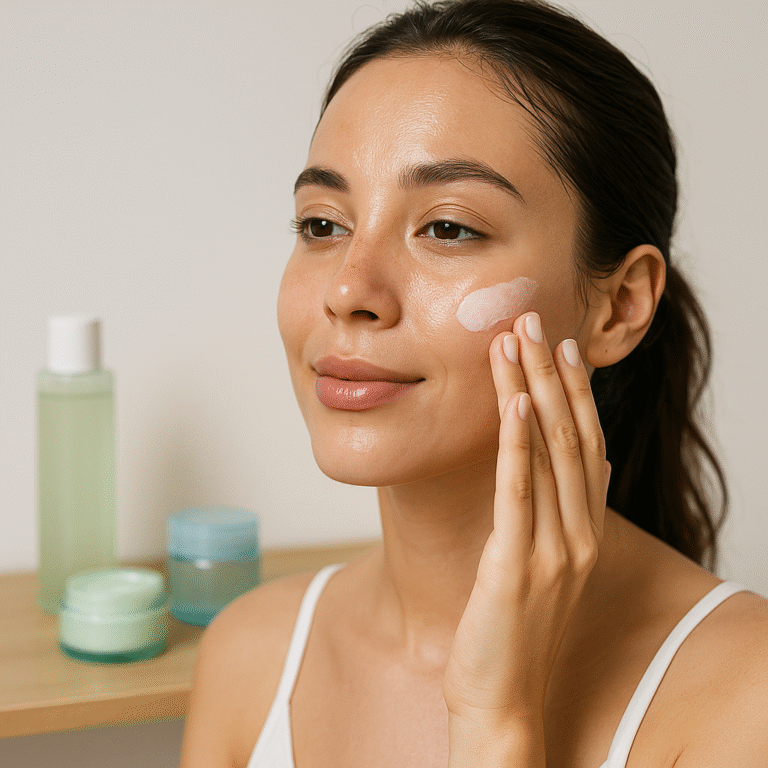How to Exfoliate Your Face for Smoother, Brighter Skin
Exfoliation is one of the most essential—but often overlooked—steps in a skincare routine. When done right, it removes dead skin cells, unclogs pores, and leaves your skin glowing and smooth.
Why Exfoliation Matters
Our skin naturally sheds dead cells, but this process can slow down due to age, weather, or skin type. This can lead to:
- Dullness
- Congested pores
- Breakouts
- Rough texture
Exfoliating speeds up cell turnover and reveals fresh, healthy skin.
Types of Exfoliants
- Physical ExfoliantsUse small grains or brushes to manually remove dead skin. Great for oily or non-sensitive skin.
- Examples: face scrubs, exfoliating mitts
- Use: 1–2 times per week
- Chemical ExfoliantsUse acids or enzymes to dissolve dead skin cells without scrubbing. Ideal for most skin types.
- AHAs (like glycolic or lactic acid)
- BHAs (like salicylic acid)
- Use: 2–3 times per week, depending on concentration
Step-by-Step: How to Exfoliate
- Cleanse your face with a gentle cleanser.
- Apply your exfoliant (scrub or acid-based product).
- Gently massage if it’s a physical exfoliant.
- Rinse thoroughly with lukewarm water.
- Moisturize to calm and hydrate the skin.
What to Avoid
- Over-exfoliating, which can damage the skin barrier.
- Harsh scrubs with large particles (like walnut shell).
- Mixing too many active ingredients—introduce them slowly.
Tip: If your skin gets red, irritated, or flaky—cut back! Exfoliation should refresh, not inflame.
Results You Can Expect
- Brighter complexion
- Better absorption of serums and moisturizers
- Smoother makeup application
- Reduction in clogged pores and blackheads
Already using hyaluronic acid? Learn how it complements exfoliation in our post Benefits of Hyaluronic Acid for Long-Lasting Hydration

